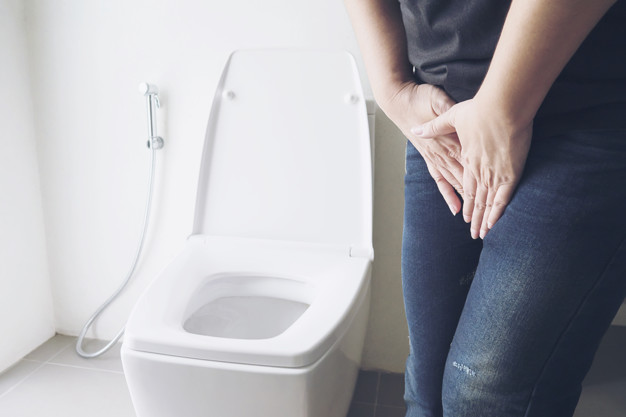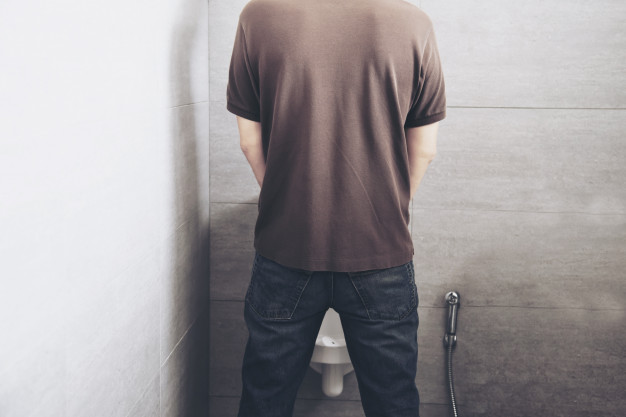Kapanlagi.com - Gonorrhea is also known as a gonorrhea disease. It is caused by an infection of the Neisseria gonorrhoeae bacteria that attacks the intimate organs of both men and women. Although the main cause of gonorrhea is infection, some people may be at risk of experiencing this disease due to various triggers.
Gonorrhea is quite familiar in society, characterized by symptoms of pain or burning during urination, and sometimes pus appears. Not many people know that this health disorder is a contagious disease that can be transmitted through sexual intercourse. This disease attacks more humid areas, including intimate organs such as the urethra, fallopian tubes, cervix, vagina, anus, eyes, and throat.
It should not be taken lightly, gonorrhea can be at risk of triggering complications if treatment or prevention is delayed. For example, pregnancy disorders or fertility disorders. However, the treatment of gonorrhea can be quick if treated properly and as early as possible.
That's why it's good to know the causes of gonorrhea in order to prevent further risks. As for the causes of gonorrhea, you can find out through the following review. The following has been summarized by kapanlagi.com from various sources.
1. Bacterial Infection

Causes of gonorrhea (credit: freepik.com)
The cause of gonorrhea or gonorrhea disease, as previously mentioned, is mainly caused by the bacterial infection Neisseria gonorrhoeae. The bacteria can attack moister areas such as intimate organs, triggering various symptoms. In most men, gonorrhea can cause symptoms such as discharge of pus from the penis or pain during urination. However, women rarely show symptoms.
Nevertheless, this condition can cause various health problems if not treated immediately. Consultation with a doctor is necessary if experiencing symptoms or having had sexual intercourse with a partner who may show symptoms of gonorrhea.
2. Intimate Relationships

Causes of gonorrhea (credit: freepik.com)
Gonorrhea is a sexually transmitted disease that can be transmitted through intimate relationships, both anal and oral. In this case, the cause of gonorrhea and its risk factors can occur through intimate contact with a partner who has a bacterial infection of Neisseria gonorrhoeae.
You may be infected with the bacteria that cause gonorrhea through direct contact with specific areas of the intimate organs such as the mouth, penis, vagina, or anus. According to webmd.com, Neisseria gonorrhoeae bacteria are known to not survive long outside the body. Therefore, transmission only occurs through intimate or sexual contact.
3. Age Factor

One of the causes of gonorrhea is age factor (credit: freepik.com)
The risk factors for gonorrhea are known to be more risky for someone with a young age range. According to mayoclinic.org, women who engage in sexual intercourse or actively engage in sexual activity under the age of 25 with a partner infected with the bacteria that causes gonorrhea are at higher risk. Therefore, consultation and examination can be considered to prevent further risk of contracting gonorrhea.
4. Have Experienced Gonorrhea

Causes of gonorrhea (credit: freepik.com)
The risk of getting gonorrhea is also vulnerable to someone who has a history of this disease. Because they may later be affected by gonorrhea again. Therefore, maintaining sexual activity with one partner or not changing partners needs to be considered to prevent this health disorder. In addition, undergoing health check-ups can also be an option to prevent infection of gonorrhea in the future.
5. Symptoms of Gonorrhea

Symptoms of gonorrhea (credit: freepik.com)
After understanding some causes and risk factors of gonorrhea, you can also recognize some symptoms of gonorrhea. Symptoms of gonorrhea can appear within 2 to 14 days after infection. However, some people do not show symptoms of gonorrhea but still carry the risk of transmitting the bacteria.
In men and women, the symptoms of gonorrhea have differences that need to be understood. The symptoms of gonorrhea in men are as follows:
- Pain and burning sensation during urination.
- Discharge from the penis, can be white, yellow, cream-colored, or slightly greenish.
- Swelling or redness of the penis.
- Swelling and pain in the testicular area.
- Persistent sore throat.
As for the symptoms of gonorrhea in women, they are as follows:
- Discharge from the vagina, slightly greenish, soft, or slightly watery.
- Pain and burning sensation during urination.
- Increased frequency of urination.
- Pain during sexual intercourse.
- Lower abdominal pain.
- Experience fever.
- Sore throat.
6. How to Prevent Gonorrhea

How to prevent gonorrhea (credit: freepik.com)
Preventing gonorrhea is easy to do as described in the review below. The ways to prevent gonorrhea are as follows, as reported by healthline.com:
- Using protection during sexual intercourse.
- Avoiding multiple sexual partners to prevent the risk of transmission.
- Undergoing testing to determine whether there is a history of sexually transmitted infections or not.
- Avoiding sexual intercourse with partners who have symptoms or risk of bacterial infection that causes gonorrhea.
- Regular check-ups to prevent bacterial infection that causes gonorrhea.
That is the cause of gonorrhea, symptoms, and risk factors that need to be aware of. Consultation and examination with a doctor can be considered to help address the health problem accurately and appropriately.
(kpl/nlw)
Disclaimer: This translation from Bahasa Indonesia to English has been generated by Artificial Intelligence.


















